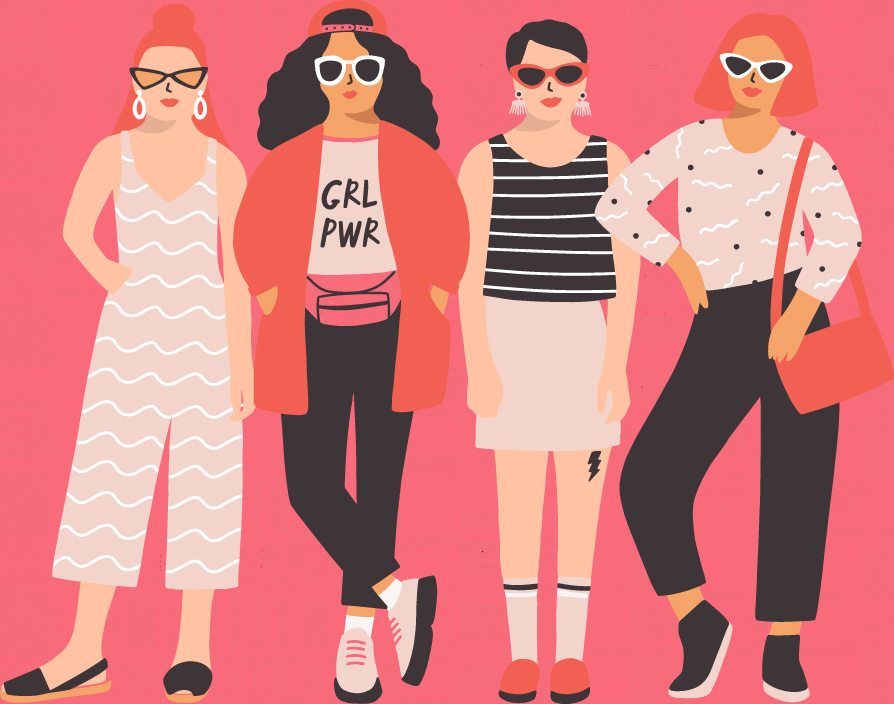When Charlie Day launched Sounds Right, the phonics class for kids franchise, she had no idea how challenging the path to success as a female founder was going to be. For starters, she had to deal with the constant questioning of how she could balance work and home –” a question most working women are familiar with. “It used to bother me when people asked why I was working when I had the option not to or ‘Why are you not focusing on being a mum?’ they would ask,” she recalls. “But nobody asked my husband if he felt bad, even though he leaves at 6am before our child wakes and comes back well after he’s asleep. When I’m away with work and have to stay in a hotel, people ask me if I’m feeling mum guilt. Nobody asks my husband when he’s away for full weeks with work if he feels dad guilt.”“
Indeed, gender inequality in business is a discussion that has gained momentum since 2017 after movements such as #TimesUp and #MeToo heralded a reckoning against sexism. Around the world, women voiced their struggle to break the glass ceiling, to fight off unwanted sexual advances and sleazy behaviours. No one was immune. Even tech titans like Google had employees around the globe protest against sexual harassment by organising massive office walkouts.“
Although companies are increasingly trying to encourage women, it seems like female franchise aficionados aren’t all impressed. “I have the same thoughts about feminism in general,” says Mandie Davis, founder and CEO of Les Puces, the French teaching franchise. “Whilst I totally get that we need to have more equality and need more women in business generally, I look forward to the day when we don’t have to think about it and can just get on with our work, whatever sex we are.”
Consequentially, 2019 has seen yet another wave of feminism and more women are striving to make their place in business. “I think as a female entrepreneur it’s difficult not to be a feminist, it’s a male-dominated world and you have to shout loud to get yourself heard,” Day opines. “Feminism is about women having equal chances and equal rights within business and franchising.” Associations such as Encouraging Women in Franchising and the bfa have actively encouraged women in franchising. The numbers are testament that they’re taking over every sector. According to the bfa NatWest franchise survey, 37% of all new franchisees in the past two years have been female and women represent 65% of the 710,000 people employed in franchising.“
Where there are women who are proud feminists, there are also those who think using labels are unnecessary and patronising. “I don’t see why I shouldn’t win over every other man out there so I don’t believe the banner of feminism is needed for all of us to be able to step up and achieve in our own right,” says Mandy Swift, south west franchise director of BBX UK, the cashless trade exchange franchise. “I believe the word feminism is used wrongly sometimes where the media and people think ‘poor women, we need to recognise them and help them’ whereas feminism should be about realising women are already strong in their own right and celebrating that.” Indeed, according to a survey by YouGov, 57% of 2010 adults said they don’t consider themselves feminists. “Feminism has created unnecessary boundaries and barriers,” Swift argues. “Where there wasn’t an issue before people now feel like they have to tiptoe around it. We used to be able to say things and laugh but now we’re scared to say things in case they offend people, which in the end breaks down relationships rather than strengthening them.”
Even though using labels might be irrelevant for many, some have taken it too far. For instance, when The Wellcome Collection, a museum and library in London, tweeted about empowering women by spelling it as womxn to condone any patriarchal language, it claimed it did so to be inclusive of transwomen and non-binary people. This new term was criticised by many including female entrepreneurs and begs the question whether feminism has gone to another extreme. “It’s just a word -“get over it,” says Davis. “Words change over time – we could all be gay a couple of decades ago but now the word has a totally different meaning. We don’t want to be using energy changing words to suit the times. I’m a woman but there’s no male domination going on here.”
Clearly, changing words isn’t the answer to solve the sexism issue. Despite the ubiquity of so many marches and protests happening globally, female founders agree that times are a-changing and women are far more powerful today than ten years ago. There needs to be a change in attitude going forward. “Know that men and women are not the same and they never will be,” insists Lee Dancy, managing director of Barking Mad, the dog sitting service franchise. “A far healthier attitude would be to acknowledge these differences and play to the strengths of one another.”“
Apart from a more optimistic perspective, it’s essential to take inspiration from role models who are empowering rather than misogynistic. “My advice for any women out there in franchising or thinking about going into franchising [is to] surround yourself [with] a tribe of successful and positive women,” Day says.“
While this year is seeing the revival of the feminism wave, female entrepreneurs believe the time is ripe to see more women in franchising. “There isn’t enough diversity in franchising and this is something that I would like to see change over the next few years,” Day concludes. While decades of sexism have wreaked havoc for many female entrepreneurs, seemingly female franchisors and franchisees are a force to be reckoned with.



































